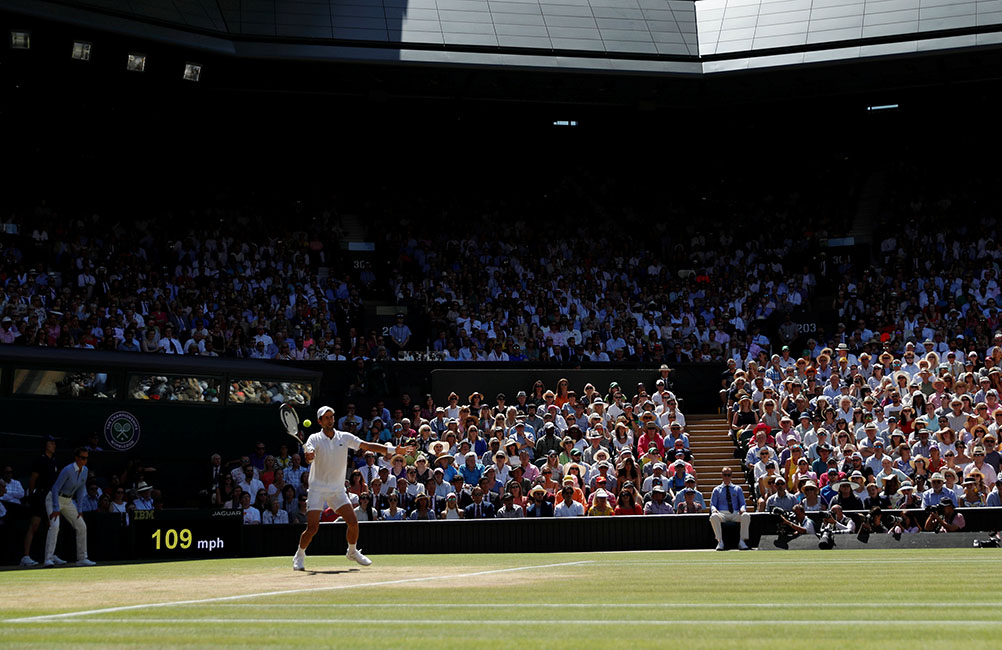Member Insights: Why jeopardy is the key ingredient in a sporting event’s success
July 26, 2023
In this week’s Member Insight piece, Richard Brinkman tells us what makes a sporting event cut-through and why jeopardy is the thing you need above all else.
Mid to late summer is a wonderful time of year for sports fans. There is an abundance of top quality events to either attend, watch or follow; and no shortage of ways in which one can connect with them.
In recent weeks the UK has been spoilt by Wimbledon, Ascot and other top-quality horse racing, Men’s and Women’s Ashes Cricket, Tour de France, Diamond League Athletics, various F1 Grand Prix, T20 Finals Day, World Aquatics Championships, Henley, and major golf championships for both men and women. This is even before you consider the Women’s Football World Cup; the beginning of Premier League pre-season and the (usually foolish) eternal hope that springs from new signings, squads and rhetoric; and the build-up to the Men’s Rugby World Cup.
There is pretty much something for everyone. We are truly spoilt for choice. However, through the great luxury of choice sports fans are brought face-to-face with two of the principal challenges that sport and its administrators are grappling with in the 2020s.
The first issue is that of attention and cut-through – gaining a significant enough share of voice and impact to keep your event moving forward both commercially and in terms of popularity and participation.
The second is the importance of jeopardy – balancing the fundamental meritocratic ethos of rewarding excellence from a level playing field with creating an entertaining event that can surprise, amaze and inspire.
Of course, these issues are not mutually exclusive – they are intrinsically linked and have a fly-wheel effect on each other in that if one is moving particularly positively so invariably will the other. However, unfortunately the opposite is also generally true.
Only this weekend the influence of jeopardy, and intrinsic excitement that it generates, was brought into stark focus for me. I am left feeling that, of the influential factors that determine whether an event is successful or not, a sense of jeopardy is the most important and vital.
I often find that the views and discussion points of other sports fans (some avid, others more casual) that I encounter at work and as I go about my social life (generally organised by my partner!) is very revealing and a good barometer of the attention and cut-through that sporting events are creating.
Indeed, last week it was very clear that, even by Wimbledon standards, the Men’s Final had transcended the sport and, indeed, the event itself. This was not solely due to the outstanding quality of the tennis. Nor the myriad of inventive ways that the AELTC had put in place for viewers to interact with the event.
Most of the discourse I heard very much focussed on the “master and apprentice” narrative revolving around the potential passing of the dominant status in tennis away from the Federer/Nadal/Djokovic hegemony to a new generation of exciting players. The conversation was very much focussed on the jeopardy that Alcaraz and his flair could, perhaps, unseat the efficiency and relentlessness of the “King of Centre Court”. And so it (thrillingly) transpired.
This weekend there was seemingly more interest in regular weather updates from Manchester, where significant sporting outcomes still very much hung in the balance, than in Lewis Hamilton’s pole and the Hungarian Grand Prix, the fall-out from the Lionesses’ hard-won opening World Cup game, or the leaderboard at The Open.
This further reinforced to me the critical nature of jeopardy and its predominance over quality and accessibility/connection.
Why would the rain at Old Trafford be of greater interest than an F1 race or the final round of one of only 4 Majors each year? The key reason, to me, is that there was still a lot riding on the outcome of Old Trafford and that an event of great consequence was still highly competitive and to be decided by the team that delivered a memorable performance. The compelling nature of the cricket played across the matches, even if not always of the highest quality, has also helped build interest.
Contrast this with Red Bull’s 12th consecutive victory in Hungary (by a very comfortable margin) and a final round at Hoylake where the leader had a decisive lead over the rest of the field going into Sunday that was never threatened or dented. There is little joy to be had in watching a Pro playing a conservative round to maintain a lead. There was certainly none of the thrill that Alcaraz and Djokovic created the previous week.
Of course, the well-documented awkwardness of Women’s World Cup match start-times for European audiences will have played a part in dampening conversation beyond the avid fan about the Lionesses and their tournament chances. A traditionally laboured opening performance from an England team does not help either.
In a world where much of what we know and love about sport seems uncertain, where a lot seems to change and shift at an ever-increasing pace it is, perhaps, reassuring that the oldest principle of all holds firm – genuine competition and uncertain outcomes – ie jeopardy – trumps all else when trying to build cut-through and presence for an event.
Yes, the quality of that competition and people’s ability to connect with it are also important but without a significant amount of jeopardy about the result (i.e. the result matters and is uncertain) a significant share of voice is tough to generate. Particularly in a world where we are spoiled for choice for world-class sporting action.
Photo credit: REUTERS/Andrew Boyers


